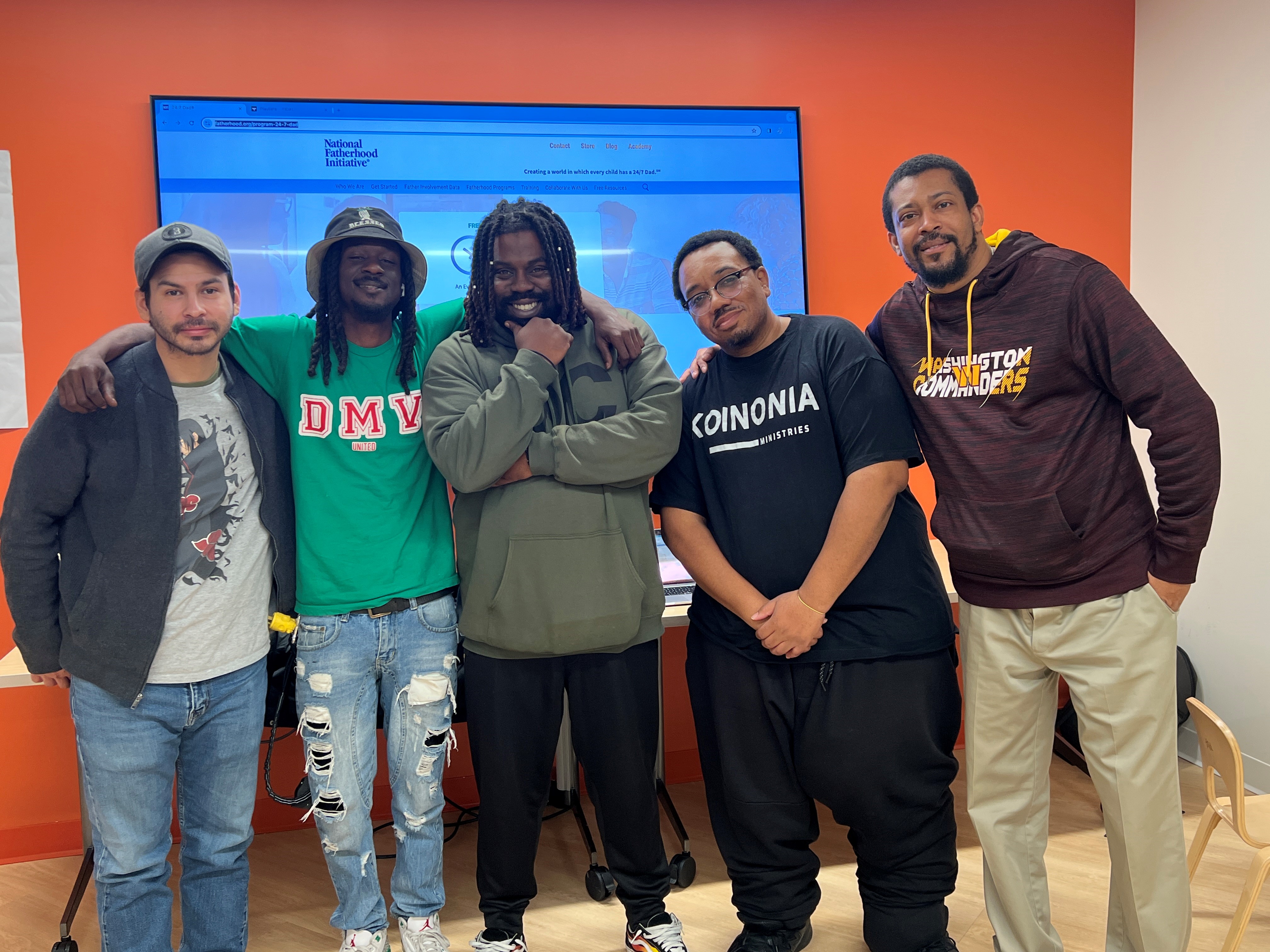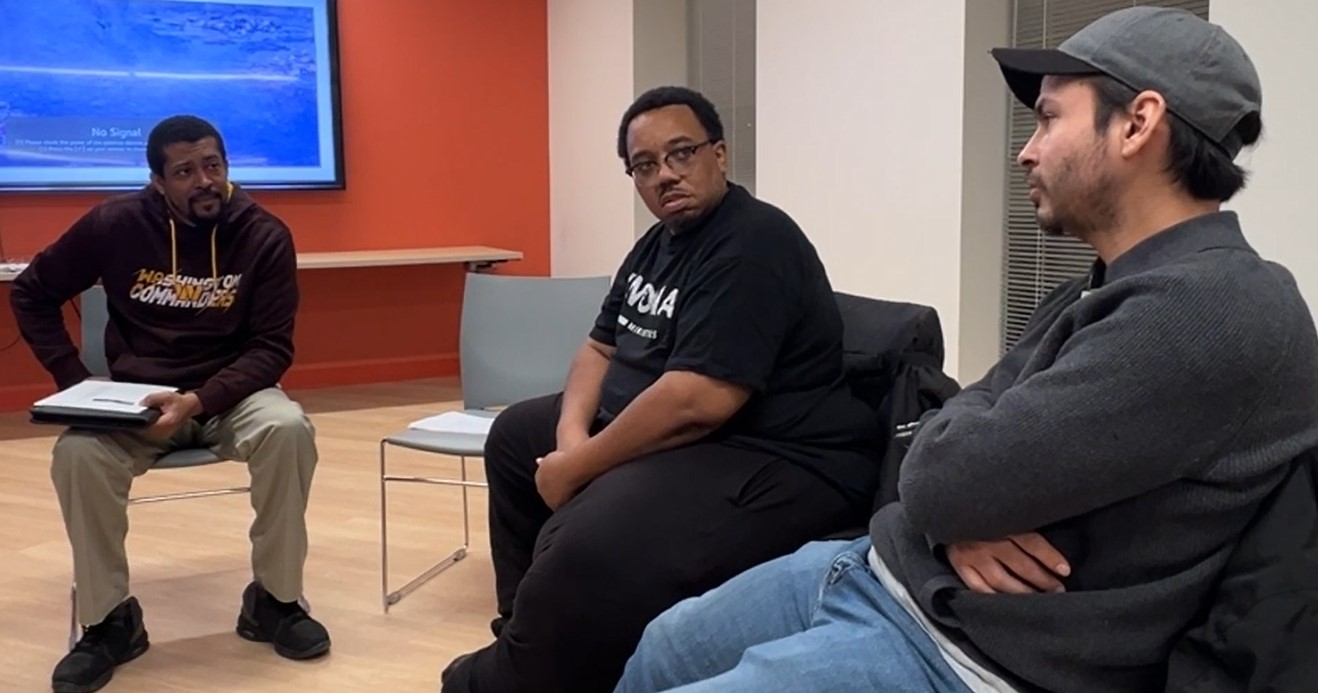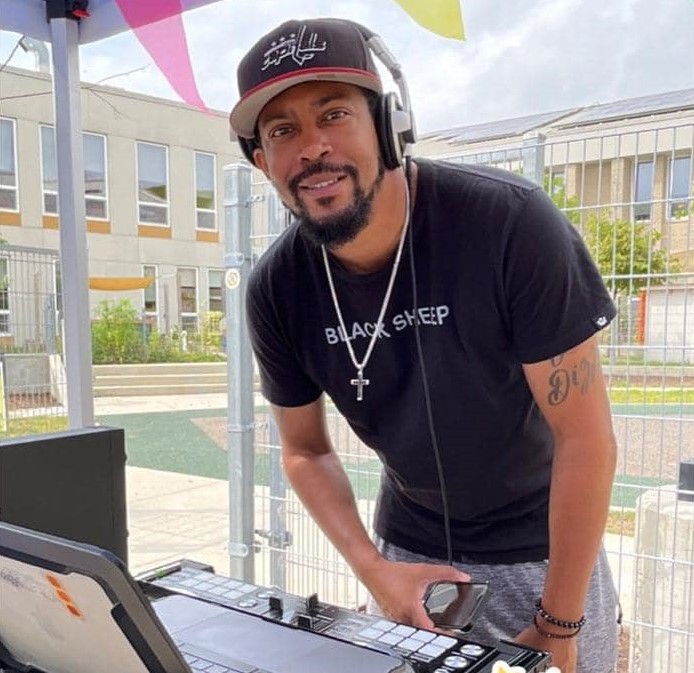Fathers can play a significant role in positively impacting maternal and child health before, during, and after pregnancy.
Among initiatives aimed at reducing maternal health disparities and improving maternal and child health outcomes, fathers’ contributions are sometimes overlooked. But for more than 16 years, Devin Anderson, the Fatherhood Coordinator at the Washington DC Healthy Start program, has been committed to strengthening the role of dads across DC.
Devin describes, “We believe in a continuum of care, meaning that we want the father to be involved through the whole process—prenatal to the birthing process, to helping out, postnatal and beyond,” said Anderson.
The DC Fatherhood Program encourages fathers and partners to participate in all activities, including prenatal appointments, safe sleep education, and fatherhood group sessions. The weekly fatherhood group sessions are based on 24/7 Dad, a curriculum shown to be effective and developed by the National Fatherhood Initiative that focuses on the characteristics needed to be a good father 24 hours a day, 7 days a week. This includes aspects such as self-awareness, caring for self, fathering skills, parenting skills, and relationship skills.
The group sessions offer a safe environment where fathers can openly discuss topics such as family history, managing emotions, work life balance, handling grief and loss, health, and relationships & co-parenting.
I’ve always stressed that a father is the right hand. We really need our fathers in there, giving their time. Not only mentally is it hard for the partner, but also physically. Sometimes community health workers cannot always be there, but a dad can always be involved,” said Anderson.
In addition to the 24/7 Dad group sessions, fathers enrolled in the Fatherhood program can receive support with job placements, continuing education, financial literacy, and therapy and support sessions alongside their partners. They also receive education on doulas, breastfeeding, and safe sleep.
For Anderson, this program has been transformative for his own fatherhood journey. While providing services for fathers who are incarcerated, Anderson’s newborn infant died shortly after a difficult birth experience. He experienced tremendous support from the incarcerated dads in the program.
Creating safe and supportive environments that help improve fathers’ wellbeing is an important part of strengthening their ability to better support their partners and children.
“I really believe that when a mother knows and sees the father as involved and coming to the visits, it just lowers the stress to make for a more safe and successful pregnancy. I think the most important thing is that she’s not going through this alone and that there is someone there who has her back,” said Anderson.


